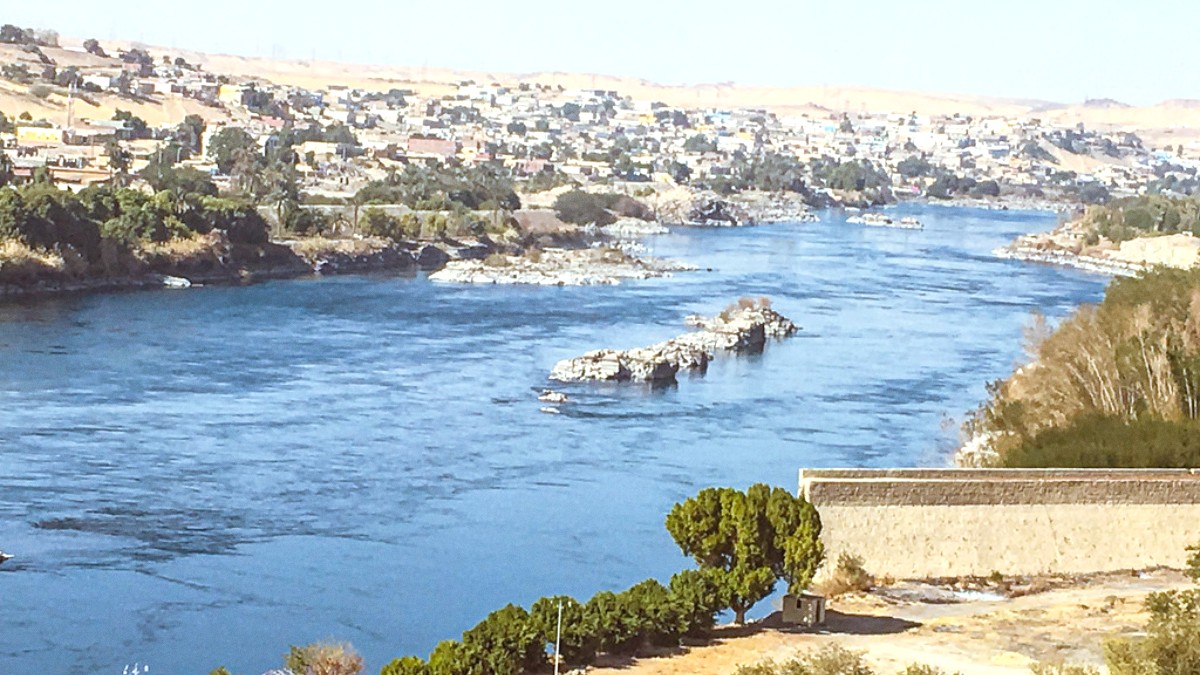
Nile Valley, Egypt
Egyptian cuisine's roots extend to ancient times, with bread and beans remaining diet staples. Over centuries, it absorbed elements from Ottoman, Mediterranean, and Levantine culinary traditions.
Aswan, in particular, possesses a strong Nubian influence, which adds unique flavors, ingredients, and dishes to the broader Egyptian fare. Food is a communal affair, often served family-style.
The Nubian influence is a highlight, with unique dishes and preparations. This includes variations of bread, rich stews (often featuring okra or meat), and specific spice mixtures. The Nubian Village or Elephantine Island offer the best opportunities to sample these.
Hospitality is common. Expect offers of tea or coffee. Eating with hands (right hand only) is common for bread and some street food. Dishes are often shared family-style. Lunch is typically the most substantial meal.
Breakfast (Futar) is light but filling. Lunch (Ghada) is the main meal, often protein, rice, bread, salads. Dinner (Asha) is lighter, typically eaten later in the evening.
Ful: Stewed fava beans, seasoned with olive oil, cumin, and lemon juice. A breakfast staple. Ta'ameya: Egyptian falafel, made from ground fava beans, herbs, and spices, then deep-fried. Served hot, often in local bread.
Find at street carts and local eateries.
Koshary: A popular street food combining rice, macaroni, lentils, chickpeas, tomato sauce, garlic vinegar, and crispy fried onions. Mahshi: Vegetables (peppers, zucchini, etc.) stuffed with seasoned rice and herbs. Mahshi is a comforting, flavorful experience.
Koshary at dedicated restaurants. Mahshi at mid-range local restaurants or local homes.
Molokhia: A thick, green soup from jute mallow leaves, often cooked with garlic and coriander, served with chicken or rabbit. Nile Perch: Freshly caught fish from the Nile River, a local specialty in Aswan, often grilled or fried.
Molokhia in traditional Egyptian restaurants. Nile Perch at Corniche or Elephantine Island restaurants.
Hawawshi: An Egyptian meat pie with spiced minced meat baked inside bread. Fiteer: A flaky, layered pastry, savory (cheese, meat) or sweet (honey, sugar, milk).
Basbousa: Sweet semolina cake in syrup. Konafa: Shredded phyllo pastry with cream or nuts, in syrup. Om Ali: Egyptian bread pudding. Roz bi Laban: Creamy rice pudding.
Fine dining exists mainly within luxury hotels (e.g., Sofitel Legend Old Cataract Aswan), offering sophisticated menus and elegant settings. Mid-range restaurants along the Corniche and city center offer mixed Egyptian and international dishes.
Abundant in the Aswan Souk and side streets. This is where you find the most authentic and affordable meals. Look for busy places with locals. The Aswan Souk is great for fresh produce, spices, and small eateries.
Egyptian cuisine includes many naturally vegetarian dishes. Halal meat is standard. Kosher food is not readily available. Gluten-free and other allergen awareness may be limited in smaller local eateries.
Some Nubian guesthouses offer informal cooking classes. Local tour operators may arrange food tours of the Aswan Souk to sample street food and learn about ingredients.
Learn to prepare traditional Nubian dishes.
Dining on a Felucca: Private sunset cruises often include traditional Egyptian dinner on board, a memorable and romantic experience. Nubian Village Dinners: Many guesthouses offer home-cooked Nubian meals in a traditional setting.
Island Dining: Restaurants on Elephantine Island offer serene dining with Nile views.
Many vegetarian dishes are vegan. Specify "no milk" or "no butter."
Be cautious of hidden dairy in sauces or cooking. Larger hotels may better understand.
Awareness of specific allergens can be limited in smaller eateries.
Online forums or apps specializing in dietary travel may provide phrases or restaurant recommendations.
Direct farm visits are not a common tourist activity in Aswan. Specialized tours to rural areas might be arranged to see date palm cultivation or local farming practices if specifically requested.
Limited direct tours available.
No major recurring food festivals are specific to Aswan. During Islamic holidays, special sweets and pastries are sold, and a festive atmosphere exists.
Observe local holiday celebrations.
The Aswan Souk contains fresh produce, spices, dates, and small eateries. It offers a lively and immersive food experience. Many vendors also offer freshly squeezed juices.
Choosing to eat where locals gather often leads to the most authentic and flavorful meals. Do not hesitate to engage with vendors.
Some Nubian guesthouses on the West Bank or Elephantine Island offer informal cooking classes. Here, you learn to prepare traditional Nubian dishes.
Staying in or visiting a Nubian guesthouse on the West Bank often presents the opportunity to enjoy home-cooked Nubian meals, served in a traditional, colorful setting.
Many felucca captains arrange a private sunset cruise that includes a traditional Egyptian dinner served right on board.
Luxury hotels often host special dinners for celebratory occasions, like New Year's Eve or other holidays, with specific menus and entertainment.
Book in advance for special events.
Some of the high-end cruise boats provide gourmet dining options as part of their inclusive packages, with diverse menus served in elegant dining rooms.
Check cruise itineraries for dining details.
Experience authentic Egyptian and Nubian tastes through street food, local eateries, and guesthouse meals.
Quench your thirst with fresh juices, traditional teas, and locally produced beverages.
Dining in Aswan extends beyond eating, creating lasting memories of culture and hospitality.
Always communicate your dietary restrictions clearly. Carrying a translation card with specific phrases in Arabic can be beneficial, especially in smaller, non-tourist-focused establishments.